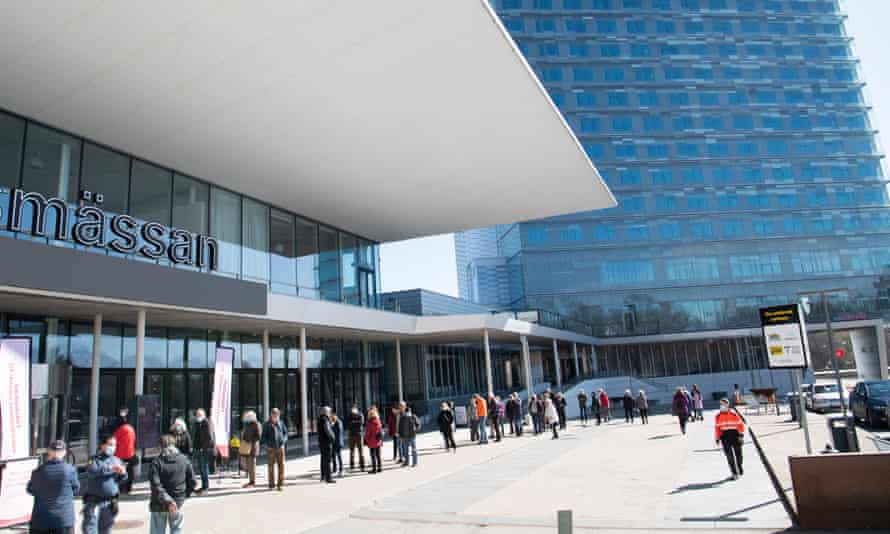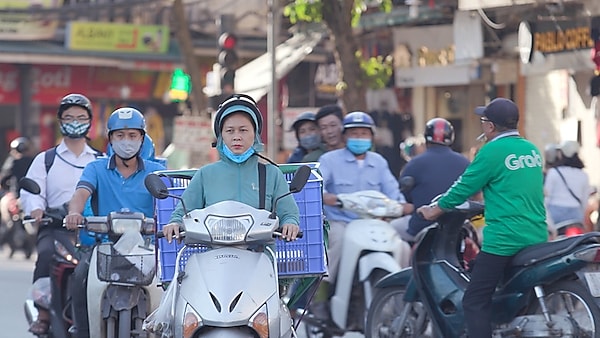- Joined
- Nov 12, 2008
- Messages
- 2,237
- Points
- 83
Its just a killer pandemic, 87,000 cases a day in Brazil with only 4000 dead there. no big deal.
more people than Sept 11 each day.
Its just a killer pandemic, 87,000 cases a day in Brazil with only 4000 dead there. no big deal.
Vaccines help but wont solve the whole situationWith more people vaccinated its becoming a rich vs poor country due to vaccine supply kind of thing
more people than Sept 11 each day.
The media, in an attempt to push their agenda, will regularly publish graphs that are designed to scare but in order to view data that is actually meaningful you need to source information from sites like euromomo.eu which tracks excess deaths for the whole of Europe on a weekly basis.
The latest data shows either low excess deaths or none at all which means that if viewed against the average death rate for a particular time of the year Covid is doing little to change the overall death toll.
Here's the excess death chart for the EU.
View attachment 108165

You are wrong on just about everything. What is like to be so full of shit?
https://www.theguardian.com/world/2...-highest-new-covid-cases-per-person-in-europe
Sweden has highest new Covid cases per person in Europe
Figure of 625 new infections per 1m people is many times larger than Nordic neighbours

People queue for their vaccine against Covid-19 at the Stockholmsmässan centre in Stockholm, Sweden. Photograph: Fredrik Sandberg/EPA
Jon Henley Europe correspondent
@jonhenley
Tue 13 Apr 2021 07.32 EDT
2,000
Sweden has reported Europe’s highest number of new coronavirus infections per head over the past week and has more patients in intensive care than at any time since the pandemic’s first wave.
The Scandinavian country, which has opted against strict lockdowns but gradually ratcheted up its still mostly voluntary restrictions, has a seven-day average of 625 new infections per million people, according to ourworldindata.org.
That compares with 521 in Poland, 491 in France, 430 in the Netherlands, 237 in Italy and 208 in Germany, the data showed. The figure was many times higher than the 65, 111 and 132 per million in Sweden’s Nordic neighbours Finland, Denmark and Norway.
According to the Swedish intensive care registry, 392 people were being treated in the country’s intensive care units on Monday, more than the second-wave peak of 389 in January but still lower than the 558 patients in ICUs in spring 2020.
However, while both infections and ICU patients have surged, Sweden’s death toll has so far not risen so sharply, a trend the national health agency said was due to many of the most vulnerable, particularly care home residents, now being vaccinated.
Advertisement
The Social Democrat-led government of the prime minister, Stefan Löfven, postponed a planned easing of some restrictions in late March until at least 3 May, but has insisted tougher measures are not yet needed to bring the latest surge under control.
The Swedish public had “really changed its behaviour and daily life is, to a very great extent, already very restricted”, said the health minister, Lena Hallengren.
The government had planned to ease some rules, including raising the limit on the number of visitors to amusement parks, concerts and football matches, after the Easter break, but was advised against doing so yet by the public health agency.
Non-essential shops have remained open in Sweden, although the government has limited customer numbers, and bars and restaurants have continued to serve, albeit with increasingly tough restrictions on opening hours and alcohol sales.
Restrictions have been steadily tightened on public gatherings but schools have mostly stayed open, although rules vary regionally. Hallengren said last week the government had brought in the measures it believed necessary.
“Whether that has been sufficient, is not a judgment that I can sit here and make,” she told MPs last week. Hallengren said the policy had been to “put lives and health first and protect the healthcare system as much as we can”.
But Hallengren said the government had also tried to “secure society’s other important functions. Once this is over, society should be able to continue to function.” The aim was not to affect people’s private lives “overly much”, she said.
Surveys show Swedes have been paying less attention to recommendations in recent weeks, prompting the country’s chief epidemiologist, Anders Tegnell, to call for greater discipline. “What’s needed is for people to observe the rules we have,” he said.
The country of 10 million people has seen more than 13,000 Covid-related deaths, giving it a death rate per million of nearly 1,350 – many times higher than that of its Nordic neighbours, but lower than in several European countries that opted for lockdowns.
An analysis of official data from several countries showed last month that the increase in excess mortality – a measure of how many more deaths a country has seen than normal – was smaller in Sweden in 2020 than in most European countries.
Infectious disease experts have said the results should not be seen as evidence that lockdowns were unnecessary, but acknowledged they may indicate Sweden’s overall stance on fighting the pandemic may have some aspects worth studying.
Preliminary data from the EU statistics agency, Eurostat, compiled by the Reuters news agency showed Sweden had 7.7% more deaths in 2020 than its average for the previous four years, a lower figure than in 21 of the 30 countries surveyed.
Spain and Belgium, which opted for repeated strict lockdowns, had so-called excess mortality of 18.1% and 16.2% respectively.
However, Sweden did much worse than its Nordic neighbours, with Denmark registering just 1.5% excess mortality and Finland 1.0%. Norway had no excess mortality at all in 2020.
... we have a small favour to ask. Across the US and around the world, millions rely on the Guardian for independent journalism that stands for truth and integrity. The Guardian has no shareholders or billionaire owner to please, and we invest every penny we earn back into our journalism. Readers chose to support us financially more than 1.5 million times in 2020, joining existing supporters in 180 countries.
With your help, we will continue to provide high-impact reporting that can counter misinformation and offer an authoritative, trustworthy source of news for everyone. With no shareholders or billionaire owner, we set our own agenda and provide truth-seeking journalism that’s free from commercial and political influence. When it’s never mattered more, we can investigate and challenge without fear or favour.
Unlike many others, we have maintained our choice: to keep Guardian journalism open for all readers, regardless of where they live or what they can afford to pay. We do this because we believe in information equality, where everyone deserves to read accurate news and thoughtful analysis. Greater numbers of people are staying well-informed on world events, and being inspired to take meaningful action.
We aim to offer readers a comprehensive, international perspective on critical events shaping our world – from the Black Lives Matter movement, to the new American administration, Brexit, and the world's slow emergence from a global pandemic. We are committed to upholding our reputation for urgent, powerful reporting on the climate emergency, and made the decision to reject advertising from fossil fuel companies, divest from the oil and gas industries, and set a course to achieve net zero emissions by 2030.
Here is cumulative deaths per million of Sweden vs other European countries that did hard lockdowns.
As you can see Sweden is doing fine.
View attachment 108223


Good I love it when this shit for brains gets his ass wiped across the floorWrong. yet again.
https://www.euronews.com/2021/04/14...ckdown-as-country-sees-daily-covid-cases-soar
Swedish region declares 'personal lockdown' as country sees daily COVID cases soar
COMMENTS
By Chantal Da Silva • Updated: 14/04/2021 - 16:27

People walk past a bin with a sign reading "The danger is not over. Keep your distance" in a pedestrian street in central Uppsala, Sweden. October 21, 2020. - Copyright Claudio Bresciani/AFP
SHARE THIS ARTICLE
https://www.euronews.com/2021/04/14...aily-covid-cases-soar#vuukle-comments-1468848
One of Sweden’s most densely populated regions has declared a “personal lockdown” as the country saw its daily rate of coronavirus cases soar.
“We are asking each [individual] to act like they are in a personal lockdown,” Mikael Köhler, health chief of the Swedish region of Uppsala, told Euronews.
Calling the effort an “extraordinary” step, Köhler said officials were asking Uppsala residents to only have close contact "with the people they live with”.
“If they have to meet other people ... everyone has to suspect that everyone they are meeting could be infected,” he said.
Uppsala’s clampdown on coronavirus measures comes as Sweden contends with a surge in COVID-19 cases, which officials have largely blamed on the spread of the UK variant.
On Tuesday, Sweden reported that it had reached a seven-day average of 587 new infections per million people, with the country’s average surpassing that of other countries across the continent, including France and Poland, according to the latest figures from Our World in Data.
EU-member country Cyprus has seen a similar surge in COVID cases, however, with the country’s seven-day average of 622 new cases per million surpassing Sweden’s numbers.
SPONSORED CONTENT
Combating the COVID-19 across borders: Japan’s multilateral approach to the...
Countries around the globe are taking comprehensive measures to respond to COVID-19, but this is a crisis that cannot be solved by nations acting alone.
By MOFA - Japan
With Uppsala recording 908 cases per 100,000 people over the past two weeks, compared to 772 nationwide, according to local reports, Köhler said the region’s new guidelines, which were initially announced last week, are a necessary step.
Home to two universities, Uppsala University and the Swedish University of Agricultural Sciences, Köhler said it is effectively “a small town in the middle of the world”.
“We have a lot of young people travelling to and from their homes,” he said, which the medical expert said he believed was “related” to Uppsala’s rise in coronavirus numbers.
He also noted that since the start of the pandemic, Sweden’s national government has been more “passive” on coronavirus restrictions than neighbouring nations.
The country has tightened its coronavirus restrictions since being hit by a second wave of the virus in October, with visitor limits imposed at shops and public venues and with pubs and restaurants forced to comply with a curfew.
But Sweden has never enforced lockdown rules similar to those seen in countries like France and the UK.
At the start of the pandemic, Köhler said he believed Sweden’s response was “too passive...and we didn’t act as quickly as we should have”. However, he said: “In the long run, I think we have gone the right way because it would have been difficult to have a lockdown for a while and then another”.
Ultimately, he said, “things have been going backward and forward all the time”.
Speaking at a press conference on Tuesday, Dr Anders Tegnell, Sweden’s state epidemiologist, said Uppsala’s decision to strengthen its coronavirus guidelines was understandable given the epidemiological situation in the area.
However, he said he believed that ultimately there is little difference between the region's guidelines and Sweden's overarching message for residents to practice social distancing and cut down on socialising as much as possible.
if you want to read ADMIN getting humiliated just read this :
https://www.sammyboy.com/threads/21...y-soon-to-catch-up.295844/page-4#post-3275064
If everyone just followed Sweden and refused to do anything they would have all the amazingly high deaths that Sweden, the USA, and now Brazil have. Its not hard to kill as many people as you can, just refuse to do anything about it.
Our favorite mass murderers in QANON so far are our Messiah Trump with over 500,000 kills, Brazil's Bolsanaro with close to 400,000 and Sweden with a very high death rate.
All these lockdowns, vaccines and safety measures save lives for sure, but who wants that? Biden? Disgusting.

Brazil is doing better than France. The problem with France is that they are forcing everyone to wear masks which makes things worse.
View attachment 108543


